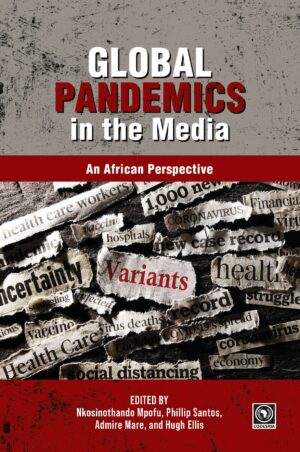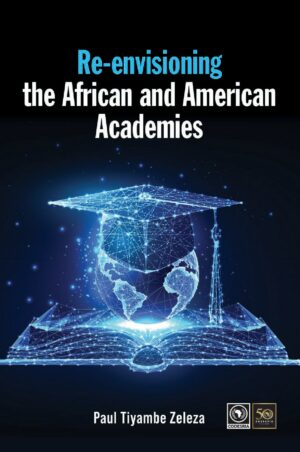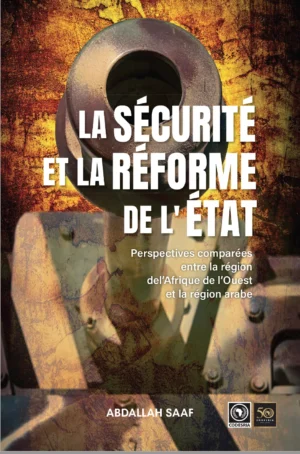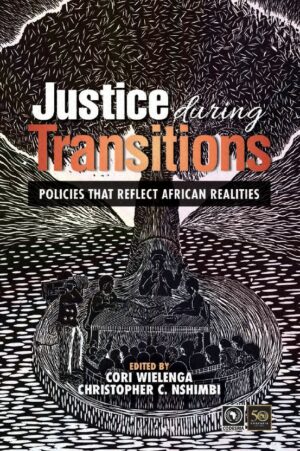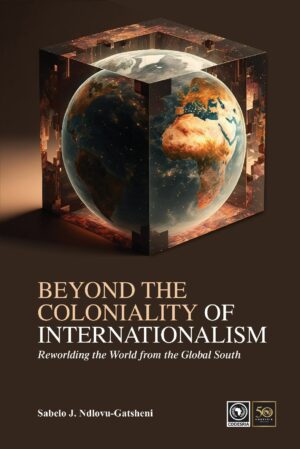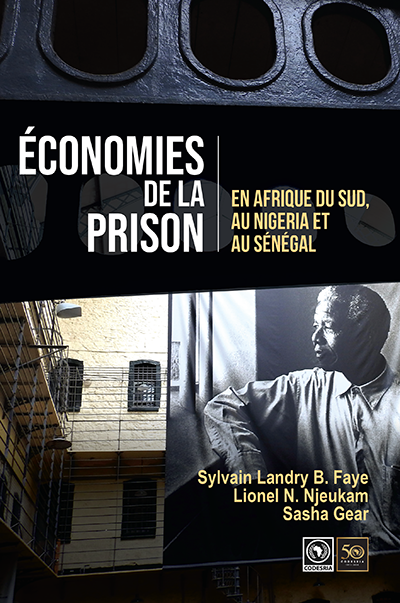Global Pandemics in the Media: An African Perspective
This ground-breaking book, which focuses on three global pandemics—HIV and AIDS, Ebola, and COVID-19—examines a broad spectrum of pandemic reporting and communication dynamics from an African perspective. […].
— Prof. Sarah Chiumbu, Department of Communication and Media Studies, University of Johannesburg, South Africa
[…]. This edited book volume uniquely underscores the importance of centring African perspectives on the mediation of global pandemics within the decolonial turn debate. It is one of few books to critically interrogate the mediation of the global pandemic
from a journalism, communication, and media studies perspective in Africa, […].
— Dr. Jacinta Maweu, Department of Philosophy & Religious Studies, University of Nairobi, Kenya
In Global Pandemics in the Media: An African Perspective, […]. The editors have generated an intellectually stimulating and ‘time-defying’ resource that centres African experiences in mainstream public health communication discourses, which are heavily dominated and crowded by Western scholarship.
— Dr. Hayes Mawindi Mabweazara, School of Social and Political Sciences,
University of Glasgow, United Kingdom
Re-envisioning the African and American Academies
This book is a true masterpiece from one of the preeminent minds in higher education today. […]
By looking across Africa and the United States in the periods before and after Covid, […].
— Ben Vinson III, President, Howard University, Washington DC, USA
In Re-envisioning the African and American Academies, Paul Tiyambe Zeleza presents a thought-provoking analysis of the state of higher education in African and American institutions, with the Covid-19 pandemic as an inflection point. […].
— Tshilidzi Marwala, Rector, United Nations University, Tokyo, Japan
Re-envisioning the African and American Academies is a seminal book for researchers, practitioners, leaders and students in wanting to interrogate and understand the state of higher education in Africa and the United States in a post-Covid world. […].
— Fanta Aw, PhD, CEO and Executive Director, NAFSA
[…], Zeleza undertakes a stringent critique of the neoliberal university and proposes concrete recommendations on how to reform and restructure the contemporary university in the world. Superb! A must-read.
— Adam Habib, Director, SOAS, University of London, England
From an academic’s and a practitioner’s perspective, Paul Zeleza intricately examines the trajectories of the development of higher education systems on two continents, with universal applicability. […].
— Nana Aba Appiah Amfo, Vice Chancellor, University of Ghana
[…]. Zeleza provides us a courageous roadmap to re-envision the African and American academies[…].
— Catherine Koverola, Director, Center for African Studies, USA
LA SECURITE ET LA REFORME DE L’ETAT: Perspectives comparees entre la region de l’Afrique de l’Ouest et la region arabe
Yes in my lifetime
Saida Yahya-Othman is a retired Associate Professor of the University of Dar es Salaam, where she worked for over 40 years. She trained at the Universities of Dar es Salaam, York and Edinburgh, in English linguistics, and has taught and published largely in that area, particularly discourse analysis and pragmatics. In 1972 she married Haroub Othman, who died in 2009. She lives in Dar es Salaam, where she does pre-publication work.
ISBN 9789987082834
2013
JUSTICE DURING TRANSITIONS – Policies that Reflect African Realities
JUSTICE DURING TRANSITIONS – Policies that Reflect African Realities
Transitional justice interventions, particularly in Africa, have failed. In this context, there is a growing interest in tradition-based community-led practices for resolving justice. Yet little is known or understood about these practices on their own terms, and what role they play in transitional justice on the continent. This volume challenges some of the underlying assumptions of current responses to mass violence on the continent, including the way these are embedded in state-centricism and an international justice system that lacks relevance in relation to the day-to-day realities of rural African communities. Through the case studies of Zimbabwe, Burundi and Mozambique the volume explores some of the limitations and possibilities with regard to justice during transitions.
Universidades Publicas em Angola, Moçambique e Cabo Verde
Esta reflexao sobre a Universidade nos paises africanos de lingua portuguesa realizada por Teresa Cruz e Silva constitui-se como leitura obrigat6ria para tod@s que se interessam por conhecer as diferencàs dos percursos na construcào do pensamento social nos nossos paises. Mas mais do que isso, a analise da autora percorre e descobre caminhos que debatendo as herancàs da dominacào colonial portuguesa ea ordem politica instaurada corn as independencias nacionais, recorre corn rigor as singularidades das relacòes entre poder politico ea Universidade.
Maria da Conceicà o Osorio,
Professora aposentada, Universidade Eduardo Mondlane
Universidades Publicas em Angola, Mocàmbique e Cabo Verde: Experiencias de mudancà e desafios de liderancà da autoria de Teresa Cruze Silva, dada a estampa pelo CODESRIA, faz um diagnòstico assaz profundo e instigante do ensino superior nos Paises Africanos de Lingua Oficial Portuguesa. Relevante tambem e a analise feita sobre as liderancàs universitarias, ainda maioritariamente gerontocraticas, que coartam as possibilidades de um maior protagonismo de docentes, pesquisadoras e gestoras no desenvolvimento e consolidacào das universidades. Estamos perante um trabalho que merece uma leitura atenta.
Claudio Alves Furtado
Universidade de Cabo Verde – Uni-CV Professor Associado, Coordenador do PIC-Belgica
ISBN 978 2 38234 045 5
CODESRIA 2023
Intellectuels, nationalisme et idéal Panafricain
Intellectuels, nationalisme et idéal panafricain – Perspective historique
” Rassembler dans un ouvrage cohérent les actes d’un colloque est souvent un véritable défi. Thierno Bah a réussi áa relever ce défi de façon crédible. La perspective historique qui constitue le fil d’Ariane des textes choisis aidera súrement le lecteur áa appréhender la crise multidimensionnelle de l’afrique dáujourd’hui par l’éclairage de son passé et áa apprécier la pertinence des solutions suggérées. Nul doute que tous ceux que le destin de notre continent ne laisse pas indifférents trouveront l’ouvrage fort utile ”.
Elisée Soumonni, Historien, Cotonou (Bénin), pr;ec;edemment Professeur á l’Université Nationale du Bénin, Abomey-Calavi
” Cette riche collection éditée par Thierno Bah montre á quel point une perspective historique peut aider á comprendre les dilemmes des intellectuels africains celui entre liberté de pensée et responsablilité morale; et, plus spécifiquement, celui entre nationalisme et panafricanisme. Une question capitale revient partout dans le livre: dans quelle mesure le panafricanisme historique pourrait-il aider á surmonter la crise tenace de l’Etat-nation sur le continent ” ?
Professeur Peter Geschiere, Université d’Amsterdam, Pays-Bas
The Concept of HUMAN RIGHTS in Africa (Second Edition)
The Concept of Human Rights in Africa attempts to reconceptualise human rights ideology from the stand point of the working people of the continent. lt argues that the dominant human rights discourse in/and on Africa, however well-intentioned, is objectively a part of the ideologies of domination. Both the critique of the dominant discourse as well as the reconceptualisation are located firmly within the current social science and jurisprudential debates on democratic struggles in Africa. Hitherto, the human rights debate in Africa has been an exclusive preserve of lawyers and philosophers. Professor Shivji breaks new ground in this book in that he firmly anchors the debate on the social and political planes without losing sight of its legal and philosophical dimensions.
While greatly stimulating for the general reader, this work can be fruitfully used in colleges and universities in such academic disciplines as sociology, political science, development studies, law, and jurisprudence.
Issa Shivji is Professor Emeritus of Law at the University of Dar es Salaam, Tanzania. He taught law at the University of Dar es Salaam for 36 years (1970-2006). He was appointed the first Mwalimu Julius Nyerere Professor in Pan-Africanism between 2008-2013. He was the Director of the Nyerere Resource Centre at the Commission for Science and Technology (2014- 2019). He has published over a dozen books and numerous book chapters and articles. His latest book is a three-volume biography of Julius Nyerere called Development as Rebellion co-authored with other two colleagues.
ISBN 978 2 38234 100 1
CODESRIA 2023
Afrique réaffirmation de notre engagement / Africa reaffirming our commitment
Afrique réaffirmation de notre engagement / Africa reaffirming our commitment
La série Dialogue politique a été conçue dans le but de créer un consensus autour d’une approche concrète à adopter pour confronter les défis majeurs du continent africain. Afrique : Réaffirmation de notre engagement a été ainsi conçu pour examiner les fondations économiques de nos états et la question de la dignité des africains en tant qu’êtres humains. Aujourd’hui, nous agissons dans un contexte de globalisation féroce où les règles du jeu reposent sur la suprématie économique et militaire; domaines dans lesquels l’Afrique est toujours en traine. L’objectif de ce livre n’est pas de se lamenter ou de montrer du doigt ceux qui sont à la base des maux de l’Afrique, mais plutôt de réfléchir sur les moyens et de proposer des stratégies qui ont pour but de nous libérer de la pauvreté et de l’oppression, et encore plus important, d’identifier les moyens d’accélérer le développement de l’Afrique. Cette édition propose les voies et moyens qui permettront à nos gouvernements d’être réellement au service des africains. Elle suggère les voies qui mènent vers l’établissement de sociétés pacifiques, harmonieuses, justes et équitables dans une Afrique où les citoyennetés locale et panafricaine seront une réalité. Ce livre fait la plaidoirie des identités collectives et les sociétés inclusives sur la base d’une vision redéfinie de notre future à travers une nouvelle éducation et un mode de socialisation dans les écoles et autres institutions nationales.
Adebayo Olukoshi
Jean Bernard Ouédraogo
Ebrima Sall
Beyond the Coloniality of Internationalism: Reworlding the World from the Global South
Beyond the Coloniality of Internationalism: Reworlding the World from the Global South
Deploying a decolonial epistemic perspective to reflect on a terminally ill international system besieged by numerous crises, Sabelo J. Ndlovu-Gatsheni makes a strong case for reworlding the world from the global South in general and global Africa in particular. Taking the Russia-Ukraine War as a crisis that portends a change of the present world order, he projects an emerging planetary pluriversal future. Challenging mainstream theories of internationalism, the book highlights anti-imperial struggles and decolonial praxes of reconstituting and remaking the world after neoliberal imperial internationalism.
“Sabelo Ndlovu-Gatsheni calls for a root and branch dismantling of the moribund order and its replacement with a new one that draws from the rich decolonial, anti-imperialist, anti-patriarchal, and human-centred heritage that is rooted in the history of struggles in the global South.”- Adebayo Olukoshi, Distinguished Professor, Wits School of Governance, South Africa
“This book is a magnificent antidote to what Nigerian writer, Chimamanda Ngozi Adichie, encapsulated in a mighty single sentence: the danger of a single story. By doing so, the book reminds us of another sign of the change of era: decolonial thinking and being in the world, rewording the world, is not an academic question, it is about life. Knowing to live rather than living to know.” Walter D. Mignolo, William Wannamaker Distinguished Professor, Duke University
“Sabelo Ndlovu-Gatsheni’s powerful book draws from the Ukraine war to provide an anti-colonial interpretation of international relations.” Vijay Prashad, Professor & Director, Tricontinental: Institute for Social Research
“Sabelo Ndlovu-Gatsheni crafts a powerful message of deliverance and peace.”-Stephen Chan, Professor of World Politics, SOAS, University of London
“Sabelo Ndlovu-Gatsheni repaints the canvas vividly from the right side, revisiting history, critiquing paradigms, and, most importantly, offering prospects for an alternative approach.” –Akosua Adomako Ampofo, Professor of African & Gender Studies, University of Ghana
“Sabelo Ndlovu-Gatsheni undertakes a breath-taking task of synthesis, bringing together into conversation Marxism, the Black Radical Tradition and decolonial perspectives into an analysis of the continuing coloniality of international power relations.” Aditya Nigam, Professor at the Centre for Developing Societies, Delhi
“Ndlovu- Gatsheni’s book is a political toolbox, as much as it is a spiritual canvas, and a historical map for all of us who refuse to believe that no other world is possible.” Ricardo Sanin-Restrepo, Professor of Legal and Political Theory, Universidad Javeriana
CODESRIA 2023
ISBN 978 2 38234 099 8
ECONOMIES DE LA PRISON EN AFRIQUE DU SUD, AU NIGERIA ET AU SÉNÉGAL
ECONOMIES DE LA PRISON EN AFRIQUE DU SUD, AU NIGERIA ET AU SÉNÉGAL
Cet ouvrage propose une ethnographie de l’institution carcérale dans trois pays africains et rend compte de ses évolutions/appropriations dans le temps. En décrivant les acteurs avec leurs interactions/transactions, les productions de légitimités et constructions identitaires qui y ont cours, la perméabilité des frontières entre le dedans et dehors, il lève le voile sur la structuration des espaces carcéraux et de l’économie des valeurs qui y circulent et la confrontation des logiques formelles et informelles qui gouvernent leur quotidien. L’approche comparée de cette question sur plusieurs terrains avec diverses approches disciplinaires permet de sortir de l’image d’une prison « africaine » réifiée comme un espace clos, et de l’envisager comme un système de transactions sociales (valeurs, biens, services), de circulations de pouvoirs, de production de statuts, de rapports de domination, dans différents contextes socio-politiques africains. La question de la prison ouvre aussi à la réflexion sur les rapports entre le local et le global. Si les formes diversifiées d’expériences de la prison traduisent des héritages singuliers, elles s’articulent aussi à des cultures politiques contemporaines, avec des modèles de « bonnes pratiques » et des principes gestionnaires « voyageurs » qui participent ainsi à façonner le paysage des systèmes pénitentiaires et à construire les États africains.
Tombouctou: Pour une histoire de l’érudition en Afrique de l’Ouest
Cet ouvrage est fascinant à lire pour tous ceux qui souhaitent percer l’aura de mystère et de légende qui s’est construit autour de Tombouctou. Tombouctou : pour une histoire de l’érudition en Afrique de l’Ouest s’efforce de contextualiser et de clarifier l’importance pour, le Mali, l’Afrique et le reste du monde, des efforts déployés en vue de préserver les manuscrits de Tombouctou.



